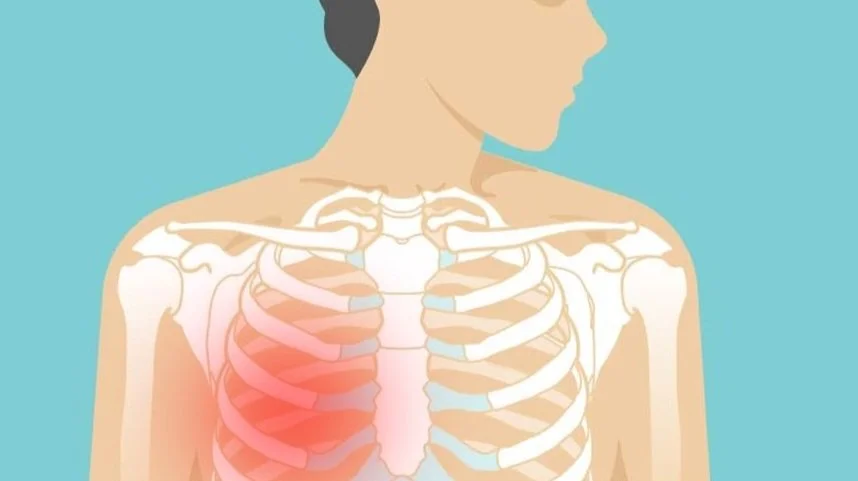Introduction Most coughs are short-lived, linked to colds or seasonal infections. But when a cough lingers for 8 weeks or longer in adults (or 4 weeks in children), it’s considered a chronic cough. At this point, it’s no longer just a nuisance—it may signal an underlying health issue. While a family doctor can start the evaluation, sometimes you need to see a specialist, such as an ENT (ear, nose, and throat doctor) or a pulmonologist (lung specialist) for deeper investigation. Common Causes of Chronic Cough When to See an ENT Specialist An ENT doctor focuses on conditions affecting the nose,…
-
-
Introduction Coughing is one of the most common reasons people visit the doctor. While it often accompanies a simple cold, a persistent or recurring cough can signal an underlying condition that needs attention. Four of the most frequent causes are asthma, gastroesophageal reflux disease (GERD), allergies, and infections. Understanding how each of these conditions leads to coughing can help you and your doctor identify the root cause and choose the right treatment. 1. Asthma and Cough Asthma is a chronic condition where the airways become inflamed and narrowed, making them sensitive to triggers. 2. GERD (Acid Reflux) and Cough GERD…
-
Introduction Few things are as frustrating as a cough that won’t let you sleep. Nighttime coughing not only disrupts rest but also worsens fatigue, slows recovery, and increases stress. While coughing is a natural reflex that helps clear irritants or mucus from the airways, certain conditions make it worse at night. Understanding the causes and applying practical remedies can help you breathe easier and sleep soundly. Why Coughing Gets Worse at Night When you lie down, the body position, environment, and airway sensitivity can make coughing more likely. Common Causes How to Sleep Better with a Nighttime Cough 1. Adjust…
-
Introduction Coughing is a protective reflex that helps clear irritants, mucus, or infections from the airways. While over-the-counter (OTC) medications can provide relief, many people prefer natural remedies—especially for mild or lingering coughs. Simple home-based approaches like honey, steam inhalation, hydration, and throat lozenges have been shown to ease irritation and support healing without strong medications. 1. Honey: Nature’s Soothing Cough Syrup 2. Steam Inhalation: Moisturizing the Airways 3. Hydration: Keeping Mucus Thin 4. Throat Lozenges: Instant Relief for Irritation Extra Tips for Natural Cough Relief When to See a Doctor While natural remedies are safe and effective for many…
-
Introduction Coughing is one of the most common symptoms people experience during colds, flu, allergies, or respiratory infections. While coughing is the body’s way of clearing irritants and mucus from the airways, it can be uncomfortable and disruptive—especially at night. That’s where cough medicines come in. But not all cough medicines work the same way. The two main types are cough suppressants and expectorants, and choosing the right one depends on the type of cough you have. What Are Cough Suppressants? Cough suppressants (also called antitussives) work by calming the cough reflex in the brain, reducing the urge to cough.…
-
Introduction Most colds resolve within a week or two, but sometimes the cough lingers long after the other symptoms are gone. This is known as a post-viral cough. While frustrating, it’s usually not dangerous and often improves on its own. However, persistent coughing can disrupt sleep, daily activities, and cause anxiety about underlying health problems. Understanding why it happens and how to manage it can make recovery smoother. Why Does a Post-Viral Cough Happen? After a viral respiratory infection, such as the common cold, flu, or COVID-19, the airways can remain inflamed and hypersensitive for weeks. This lingering irritation can…
-
Introduction Coughing is a natural reflex that helps clear the airways and protect the lungs. However, not all coughs are the same. Doctors often classify them as dry (non-productive) or wet (productive), depending on whether mucus or phlegm is present. Understanding the difference between these two types of cough is important, since their causes, treatments, and implications can vary widely. What is a Dry Cough? A dry cough does not produce mucus or phlegm. It often feels tickly, irritating, or scratchy. Common Causes Treatment Approaches What is a Wet Cough? A wet cough produces mucus (phlegm or sputum), helping to…
-
Introduction Chest pain is a symptom that often causes alarm, as many people immediately think of heart problems. However, not all chest pain is heart-related. One common cause of non-cardiac chest pain is costochondritis, an inflammation of the cartilage that connects the ribs to the breastbone (sternum). While it can be uncomfortable and even mimic heart attack pain, costochondritis is usually harmless and treatable. What is Costochondritis? Causes and Risk Factors The exact cause is not always clear, but common triggers include: Symptoms of Costochondritis Diagnosing Costochondritis Because chest pain can be heart-related, doctors first rule out cardiac causes with:…
-
Introduction Not all chest pain comes from the heart. In fact, many people experience recurrent chest discomfort unrelated to heart disease, known as non-cardiac chest pain (NCCP). This type of pain can be caused by gastrointestinal, musculoskeletal, lung-related, or psychological conditions. While it is not directly linked to blocked arteries, recurrent non-cardiac chest pain can still be distressing and impact daily life. Proper evaluation and management are essential to improve the quality of life and rule out serious conditions. Common Causes of Non-Cardiac Chest Pain 1. Gastroesophageal Reflux Disease (GERD) 2. Esophageal Disorders 3. Musculoskeletal Conditions 4. Pulmonary Causes 5.…
-
Introduction Heart disease is the leading cause of death among women worldwide, yet it is often underrecognized. While chest pain is the hallmark symptom of a heart attack, women frequently experience atypical or subtle symptoms that may not be immediately linked to the heart. These differences can delay diagnosis and treatment, putting women at higher risk of complications. Understanding the unique ways heart attacks present in women is essential for timely recognition and care. Why Women’s Symptoms Can Differ Biological and hormonal differences affect how women experience heart disease: Typical vs. Atypical Symptoms Classic “Male-pattern” Heart Attack Symptoms Atypical Symptoms…










